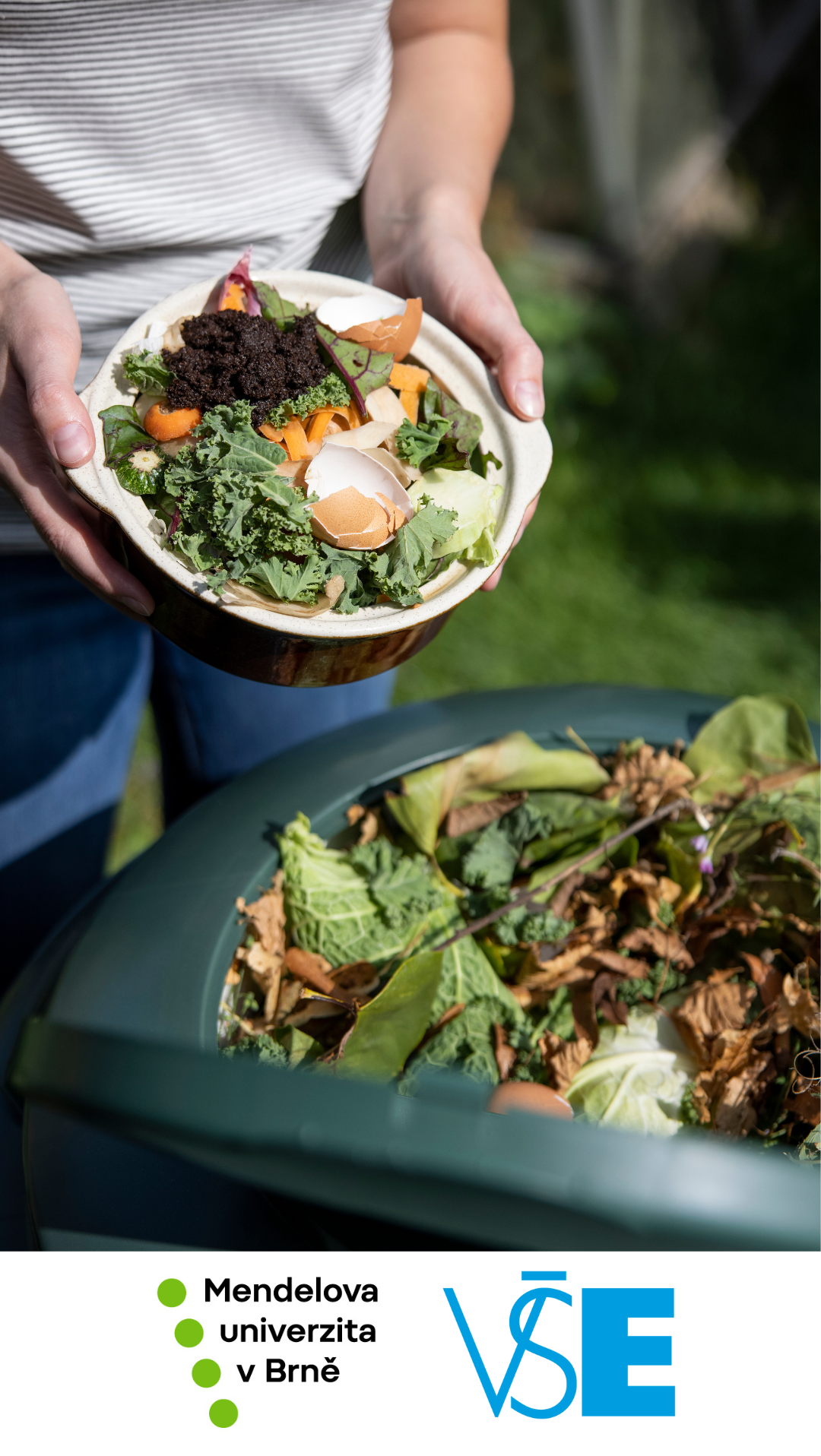Where does Generation Z stand on food waste?
Generation Z, those born between 1995 and 2010, are estimated to waste more food than the previous generation, a total of 43.4 grams per person per day. However, those who live with their parents waste only half as much. These and other data have emerged from the first year of research investigations of a three-year project aimed at reducing food waste among Generation Z. The first data are being analysed by researchers from Mendel University in Brno in collaboration with researchers from the University of Economics and Business in Prague.
The results of the project, which is supported by TA ČR, provide valuable insights into how waste rates change when young people become independent and no longer under parental supervision, and how their behaviour is reflected in the composition of mixed urban waste. At the beginning of the research, an extensive questionnaire survey was conducted, which the team is now supplementing with the results of analyses of mixed urban waste collected at ten college campuses across the country on a continuous basis from the fall of 2023 to this spring, as well as through diary surveys. “The students were not aware that their waste was being collected and analysed in detail, which is why we have unbiased figures and a clear picture of the real behaviour of this generation,” said project leader Lucie Veselá from PEF MENDELU.
The diary surveys, in which respondents recorded what food waste was generated during the day and the exact amount, were also completely anonymous. “The financial and material support of Albert, Kaufland, Alza and Nestlé was very important for the implementation of the diary survey. Thanks to them, we were able to reward the respondents generously, which was essential for obtaining a balanced target group and thus adhering to the correct methodology. Thanks to this, we managed to capture not only enthusiasts who are interested in the topic of food waste, but also the whole broad spectrum of Generation Z,” added Veronika Mokrejšová from the Faculty of Economics of the University of Economics and Business in Prague, whose research team was responsible for the diary survey.
The analyses of mixed municipal waste from the dormitories, with an emphasis on biological waste, were carried out by GREEN Solution. “The waste analyses carried out indicate a higher rate of waste, more specifically 43.4 grams per person per day, than that reported by Generation Z in the diary surveys (30.0 grams). Focusing on the amount of wasted food that this generation estimated in the questionnaire survey, it turned out that if they live with their parents, they reported an average of 38 grams/person/day, but those living alone in the dormitories estimated 59 grams per person per day. This finding is consistent with the measurement of wastage using diary surveys. Considering that students in the dormitories do not consume all their meals and do not spend most of the day there, this is therefore a relatively high value, which we will now investigate further,” Lucie Veselá explained.
Sampling took place in each dormitory on three occasions (spring, autumn and winter), with summer deliberately omitted as students do not live in the dormitories during these months. The largest amount of wasted food was produced in autumn (20.7% of the structure from mixed municipal waste). Fruits and vegetables were the most wasted, followed by pastries. The survey also shows an increasing rate of food waste among students who live alone than among their peers who live with parents or in other types of households. “Per capita food waste also increases as the number of household members decreases,” added project leader Veronika Antošová from the PEF MENDELU.
However, the structure of the dormitory waste itself was a big surprise for the researchers, as it turned out that students in dormitories sort very little (plastic, paper and glass) compared to households. Households throw away approximately 10.0% of plastic and 6.8% of paper as part of their mixed municipal waste, while in student halls of residence it was 17.1% plastic and 12.1% paper, almost twice as much. Researchers will also try to find an answer to this question.
This month, the “Don’t Be Trash” communication campaign has already been launched on social media and educational lectures on food waste will be held at selected universities across the Czech Republic. Waste measurements on campus will continue to be taken and researchers will monitor whether the interventions result in behavioural change towards more sustainable food management. In the final year of the project, the interventions will be stopped and it will be monitored whether or not the campaign has had a longer-term effect. The results obtained from the project are crucial for future research and the development of strategies aimed at reducing food waste among Generation Z.
The three-year research project was launched in September 2023. Co-principal investigators of the project are the University of Economics in Prague, Charles University in Prague, GREEN Solution s.r.o. and INESAN s.r.o.
